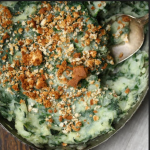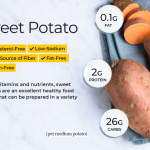The Trials of a King
Once there was a little boy who lived in the country. They had to use an outhouse for a facility and the little boy absolutely hated the outhouse because it was always hot in the summer, cold in the winter, and it stunk all the time.? So the little boy decided that, because the outhouse was on the bank by a creek, he would push the outhouse into the water. After a spring rain when the creek was fully swollen, the boy knew it was time to push the outhouse into the creek.? He got a big stick and he pushed and the outhouse toppled into the creek and floated away. Later that night his dad told him that they were going to make a trip out to the woodshed. The little boy knew that meant a spanking. He asked his father why and the father said, “Because someone pushed the outhouse into the creek today, and I think it was you. Wasn’t it, son?”? The boy answered, “Yes, it was, Dad.”? Then the little boy thought and said, “Today, Dad, I read in school that when George Washington cut down the cherry tree, he didn’t get into trouble because he told the truth.” The father responded, “Well, yes, son, but George Washington’s father wasn’t in that cherry tree.? Most of us have never toppled an outhouse, but all of us can identify with the little boy in three ways. First, we have something inside us that wants to be slightly rebellious, push the limits. Second, our lack of awareness and sometimes good judgment affects others. And, third, there are always consequences to our choices. We see all these things at work in The Story. We discover that David has it all. Everything he does turns to gold. He defeats enemies time and again, shows kindness to Mephibosheth, and expands his kingdom. The world is at peace and David is at rest in his palace. Then we learn in 2 Samuel 11 that David lets down his guard and makes tragic choices that cause a pivotal shift in David?s life, family and kingdom. I invited you to pray with me over the sermon titled ?The Trials of a King.? Let us pray.
We have all made decisions that we wish we hadn?t. Where we wish we could turn back time and get a do-over. Many of us have also learned from these moments and moved forward learning something that caused us to grow a little more. Sometimes those moments are what have brought us to this point in our lives and we have grown from them. But in order for us to move beyond that time, typically something needs to happen. The first thing is accepting the fact that there was a bad choice made, acknowledging it, and not blaming others for what has happened. The second thing that needs to happen is forgiveness. Whether it is forgiving someone else, forgiving yourself for what has happened, or asking God to forgive us for our sin, forgiveness is key to letting something go and moving forward in life and relationship. King David exhibits the importance of acceptance and forgiveness. Does life turn out perfectly because he does? No. But he still keeps his heart focused on God, and his relationship with God doesn?t waver again.
In 2 Samuel 11, is the infamous story of David and Bathsheba. Bathsheba is taking a bath on her roof, which is perfectly normal in their culture. And David sees her and decides instantly that he wants to be with her. In that moment, David?s heart sways. David commits adultery with Bathsheba, who was Uriah?s wife, and of course she gets pregnant. Then David begins to create some ways to cover up his sin and adultery. He bring Uriah back from war and tries to get Uriah to sleep with Bathsheba so everyone will think the baby is Uriah?s. But Uriah, who truly is a man of integrity, refuses to go into his home because the men are still fighting the war (2 Samuel 11:10-11). After that plan doesn?t work, David goes for plan B.? David arranges to have Uriah killed in battle, and it works. Then David marries Bathsheba. (2 Samuel 11:15).? Isn?t that a great way to start a relationship?? And David was probably thinking, everything is somewhat back to normal, everything is covered up, all will be fine?right? When we lie, cover things up, bury the truth, and pretend like everything is ?normal,? things are always great?
Then Nathan came to share these words with David: The Lord sent Nathan to David. ?There were two men in a certain town, one rich and the other poor. The rich man had a very large number of sheep and cattle,?but the poor man had nothing except one little ewe lamb he had bought. He raised it, and it grew up with him and his children. It shared his food, drank from his cup and even slept in his arms. It was like a daughter to him. ?Now a traveler came to the rich man, but the rich man refrained from taking one of his own sheep or cattle to prepare a meal for the traveler who had come to him. Instead, he took the ewe lamb that belonged to the poor man and prepared it for the one who had come to him.?
David burned with anger against the man and said to Nathan, ?As surely as the Lord lives, the man who did this must die! He must pay for that lamb four times over, because he did such a thing and had no pity.? Then Nathan said to David, ?You are the man! This is what the Lord, the God of Israel, says: ?I anointed you king over Israel, and I delivered you from the hand of Saul. I gave your master?s house to you, and your master?s wives into your arms. I gave you all Israel and Judah. And if all this had been too little, I would have given you even more. Why did you despise the word of the Lord by doing what is evil in his eyes? You struck down Uriah the Hittite with the sword and took his wife to be your own. You killed him with the sword of the Ammonites. Now, therefore, the sword will never depart from your house, because you despised me and took the wife of Uriah the Hittite to be your own.? ?This is what the Lord says: ?Out of your own household I am going to bring calamity on you. Before your very eyes I will take your wives and give them to one who is close to you, and he will sleep with your wives in broad daylight. You did it in secret, but I will do this thing in broad daylight before all Israel.?? Then David said to Nathan, ?I have sinned against the Lord.?
David accepted what Nathan said. And knew what he did was wrong. David didn?t blame anyone else. And then he asked for forgiveness. Psalm 51 is considered the Psalm David wrote to God after Nathan spoke the truth to him.
?Have mercy on me, O God, according to your unfailing love; according to your great compassion blot out my transgressions. Wash away all my iniquity?and cleanse me from my sin.For I know my transgressions, and my sin is always before me.Against you, you only, have I sinnedand done what is evil in your sight;so you are right in your verdictand justified when you judge.Surely I was sinful at birth,?sinful from the time my mother conceived me.Yet you desired faithfulness even in the womb;you taught me wisdom in that secret place.Cleanse me with hyssop, and I will be clean; wash me, and I will be whiter than snow.Let me hear joy and gladness;let the bones you have crushed rejoice.Hide your face from my sins?and blot out all my iniquity.Create in me a pure heart, O God,and renew a steadfast spirit within me.Do not cast me from your presenceor take your Holy Spirit from me.Restore to me the joy of your salvationand grant me a willing spirit, to sustain me.? David came clean with God. David confessed his sin, he made himself humble before God, and asked for God?s forgiveness, and God forgave him. But there were still consequences for his behavior in his personal life.? The baby conceived in adultery, dies. David?s daughter is raped. And Absalom rebels from David. In the kingdom, David flees in exile when Absalom rebels and takes the throne. Absalom dies and David?s other son provokes the next major rebellion.
????????? I don?t know about you, but remaining faithful to God during times like these would be incredibly difficult. It is normally the time when we run from God, put God aside, and ask the questions, ?Why God?? Yet David knew the answer to ?Why God?? Even with all of this turmoil, David bears the consequences with dignity and David?s relationship with the God of grace is restored.
So now what? What do we do with this story? How does it connect to where we are today?
Well, when we sin, and we all will, we must?
–admit our sins honestly to God. In doing so, we are continuing to humbly submit our lives to God.
–live with the consequences with dignity and humility.
–experience the forgiving, restoring grace of God.
We all have an outhouse story. As we look around this room, I know we have all been in situations where we have messed up at some point in our lives. And if we continue to look around this room, we also see many people who have worked through the mess, humbled themselves before God, and are in a better place because of it. As we continue our journey through The Story, God?s Story and Our Story, it is my prayer that we are able to see how our stories connect and how we all have a place in God?s Story. Just as David spent time in prayer, reading, repenting, reflection, and serving God, it is my hope that you are also spending time in prayer, reading, repenting, reflection, and in service to God. David grew in his relationship with God because David spent time with God every day?even when the hard times hit. Because you never know what God is preparing you for?you see, David and Bathsheba had another son. His name was Solomon. Bathsheba would have been considered an outsider of the faith, just like Rahab and Ruth. Yet, God used Bathsheba to be the mother of Solomon, who is in the lineage of Jesus. God continues to show that God?s love and grace includes everyone into his family. It is my prayer that your outhouse story doesn?t prevent you from looking to God, to humbly submitting to God and talking with God about where your life has been a mess, seeking God?s forgiveness, and continually desiring to be a person after God?s own heart.







